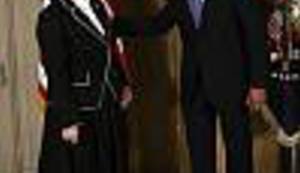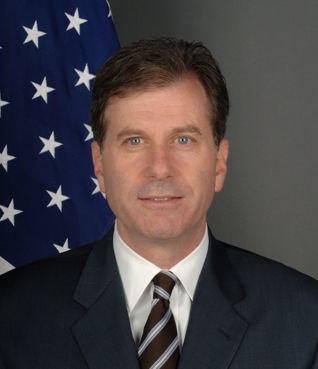
AMERIČKI DOKUMENT O PREMIJERKI: Kosor je udarila antikorupcijski smjer, a bori se jer nema što izgubiti

Autor izvještaja - veleposalnik James B. Foley
Friday, 30 October 2009, 15:38
C O N F I D E N T I A L SECTION 01 OF 02 ZAGREB
SUBJECT: PM KOSOR STRENGTHENING POLITICAL WILL TO FIGHT CORRUPTION; DEPUTY PM POLANCEC RESIGNS
Classified By: Political Officer Chris Zimmer for reasons 1.4 (b) and ( d).
1. (C) SUMMARY: Since Jadranka Kosor took over as Prime Minister in July following Ivo Sanader's sudden resignation, she has brought to her office what appears to be a new attitude toward allegedly corrupt party members that is strengthening the political will to fight corruption at all levels in the Croatian government and economy. While no convictions have occurred since she took office, a steady stream of investigations and indictments has been coming out of the Ministry of Interior and the State Prosecutor's Offices. Senior government officials have told us that Kosor has said she will not protect corrupt members of the party out of loyalty or to maintain influence, as Sanader did. On October 30, Deputy PM and Economics Minister Damir Polancec resigned over allegations of involvement in a scandal at a large agri-business firm. END SUMMARY.
2. (C) For the past three years, the Croatian State Prosecutor's Office for the Suppression of Organized Crime and Corruption (USKOK) has been ratcheting up its activity in corruption cases. Until this year, however, its cases had involved mid-level bureaucrats in services such as the land registry, or health and education systems. Few indictees could be described as being politically-well connected. Since this summer, however, a series of cases have been playing out in both the media and the police and prosecutors' offices. These cases have begun to reach politically-connected individuals. Cases under investigation have already led to significant changes in management, and detention of some key players, at the state-owned electric company HEP, and the 25-percent state-owned food producer Podravka. In another case, a long-awaited investigation of a military procurement from 2004 in involving former Defense (and later Interior) Minister Berislav Roncevic was launched following Sanader's July resignation, with indictments issued against Roncevic and a close aide on October 28 (reftel). State Prosecutors have confided to us that they have a number of other cases either under indictment or active investigation that could also implicate high-level political figures.
XXXXXXXXXXXX
3. (C) All of these cases have reportedly created strains within the ruling HDZ party, with senior party members arguing that the government should not rush to judgment, and that Kosor was being too quick to seek dismissal of those tainted by various allegations. The Prodravka case presents the latest challenge in this regard. Minister of Economy (and Deputy Prime Minister) Damir Polancec is a former Podravka executive and is suspected of participation in the alleged scheme by which the management board was using embezzled funds to buy a controlling interest in the company. Six managers were arrested last week for their roles in the scheme, but Polancec has not been publicly named by investigators as a suspect. Opposition parties and the media called vociferously for Polancec's resignation, and the leader of a junior partner in the ruling coalition publicly stated that his party, the Independent Serb Democratic Party (SDSS), would not support Polancec if parliament voted on a motion for his dismissal. Polancec suddenly resigned his position today (October 30).
4. (C) Many well-informed sources have commented in particular on the shift in attitudes toward corruption between Kosor and her predecessor, Ivo Sanader. MFA State Secretary Davor Bozinovic told the Ambassador on October 26 that Kosor potentially is commencing an historic shift in governance in Croatia. He and others have noted that President Mesic is quietly supporting Kosor, his erstwhile presidential opponent, against the HDZ old guard. Bozinovic regretted that the opposition is not supporting her anti-corruption efforts, which could spare them a difficult task when they return to power.
5. (C) Chamber of Commerce President Nadan Vidosevic, a long-time HDZ member and now independent candidate for president of Croatia, told the Ambassador on October 27 that he also saw a change in approach. He claimed Sanader and Kosor had recently argued over Kosor's approach to the corruption investigations. Kosor insisted that Chief State Prosecutor Bajic be allowed to pursue all leads, while Sanader saw this as a threat to him and other party cronies.
ZAGREB 00000644 002 OF 002
(NOTE: Bajic himself has told the Ambassador that he has the authority to investigate anybody as evidence dictates, and that he would pursue an investigation against Polancec in the Podravka case. END NOTE.)
A media source recently alleged to us that Kosor had directly threatened Sanader with potential legal action. Vidosovic claimed Polancec told him he would finger Sanader if he were indicted.
6. (C) Luka Madjeric, Head of the Government's Office for Human Rights and a former assistant to Kosor, told Poloff that Kosor rose quietly through the ranks of the HDZ. Therefore, he said, she does not have as many political IOUs, nor is she complicit in the scandals now plaguing other party members. This allows her to address corruption issues in a more straightforward manner than her predecessor. Since she does not have to worry about being personally implicated in the scandals, she is more willing than Sanader was to allow prosecutors and police to pursue leads that may implicate top party officials.
7. (SBU) The new political will to target corruption coincides with improved procedures for investigating and prosecuting cases, many of which have been designed and advocated for under US and other donors' assistance programs. In September, the national police officially opened their own Office for the Suppression of Corruption and Organized Crime (PN-USKOK), which serves as a partner to the prosecutor's USKOK division. Both the police and prosecutor USKOKs have offices in the four largest cities, Zagreb, Split, Rijeka, and Osijek, and jurisdiction for investigating organized crime and corruption cases. Courts in these four cities also have specialized USKOK courts, created in early 2009, with cleared panels of experienced judges specially trained to hear these complex criminal cases. And, as of July 1, Croatia's new Law on Criminal Procedure granted USKOK prosecutors many of the functions previously held by investigative judges. Prosecutors can now question suspects and witnesses without going through lengthy procedures in the courts. Bajic has told us that these changes have greatly increased the pace of investigations and helped minimize leaks and the potential for witness tampering.
8. (C) COMMENT: Kosor's willingness to confront corruption appears genuine. But it almost certainly includes some elements of political calculation. First, the strategy of simply denying, ignoring or stiff-arming corruption investigations was growing increasingly hard to sustain, especially given USKOK's increasing effectiveness. Trying to de-fang USKOK, as some HDZ hard-liners have reportedly suggested, would have met with strong international condemnation and damaged Croatia's EU aspirations. Second, Kosor, who rose to the top of the party without a mandate from the voters and with less long-standing ties than many of the party's barons, may well be quite happy to see intra-party rivals weakened by more aggressive and free-ranging investigations into corruption. Finally, given the HDZ's current unpopularity, Kosor may simply have calculated that she had little to lose, and that it was best to start right away in hopes of changing the HDZ's public image before the next elections, which must be held by fall 2011 but could come as early as spring 2010 if the governing coalition fractured. So, while the developments of the past few months signal progress, it is premature to declare victory in the fight against corruption in Croatia. No "big fish" convictions have yet been secured. And Kosor may yet find that the strains created by anti-corruption cases may complicate dealing with challenges such as the economic crisis and completing the requirements for EU accession. Nonetheless, this is potentially the beginning of a watershed moment in Croatia, made possible by an unexpected leader whose party cannot at the moment afford to disperse with her. END COMMENT. FOLEY
Lupiga.Com















